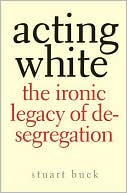Category Books
- Fiction Books & Literature
- Graphic Novels
- Horror
- Mystery & Crime
- Poetry
- Romance Books
- Science Fiction & Fantasy
- Thrillers
- Westerns
- Ages 0-2
- Ages 3-5
- Ages 6-8
- Ages 9-12
- Teens
- Children's Books
- African Americans
- Antiques & Collectibles
- Art, Architecture & Photography
- Bibles & Bible Studies
- Biography
- Business Books
- Christianity
- Computer Books & Technology Books
- Cookbooks, Food & Wine
- Crafts & Hobbies Books
- Education & Teaching
- Engineering
- Entertainment
- Foreign Languages
- Game Books
- Gay & Lesbian
- Health Books, Diet & Fitness Books
- History
- Home & Garden
- Humor Books
- Judaism & Judaica
- Law
- Medical Books
- New Age & Spirituality
- Nonfiction
- Parenting & Family
- Pets
- Philosophy
- Political Books & Current Events Books
- Psychology & Psychotherapy
- Reference
- Religion Books
- Science & Nature
- Self Improvement
- Sex & Relationships
- Social Sciences
- Sports & Adventure
- Study Guides & Test Prep
- Travel
- True Crime
- Weddings
- Women's Studies
Acting White: The Ironic Legacy of Desegregation »

Authors: Stuart Buck
ISBN-13: 9780300123913, ISBN-10: 0300123914
Format: Hardcover
Publisher: Yale University Press
Date Published: May 2010
Edition: (Non-applicable)
Author Biography: Stuart Buck
An honors graduate of Harvard Law School, Stuart Buck is a Ph.D. student in education policy at the University of Arkansas. His work has appeared in the Harvard Law Review, the Administrative Law Review, and several other scholarly journals.
Book Synopsis
Commentators from Bill Cosby to Barack Obama have observed the phenomenon of black schoolchildren accusing studious classmates of “acting white.” How did this contentious phrase, with roots in Jim Crow-era racial discord, become a part of the schoolyard lexicon, and what does it say about the state of racial identity in the American system of education?
The answer, writes Stuart Buck in this frank and thoroughly researched book, lies in the complex history of desegregation. Although it arose from noble impulses and was to the overall benefit of the nation, racial desegegration was often implemented in a way that was devastating to black communities. It frequently destroyed black schools, reduced the numbers of black principals who could serve as role models, and made school a strange and uncomfortable environment for black children, a place many viewed as quintessentially “white.”
Drawing on research in education, history, and sociology as well as articles, interviews, and personal testimony, Buck reveals the unexpected result of desegregation and suggests practical solutions for making racial identification a positive force in the classroom.
Publishers Weekly
Buck, Arkansas University doctoral fellow in education reform, enters the black-white achievement gap debate with a review of anti-academic attitudes among some black students, who dub school achievement as “acting white”; he finds its roots in “what was lost when schools were desegregated.” Buck fears misinterpretation (“no one should read this section as suggesting that we should go back to segregated schools”) as he delineates the costs of losing the schools as community centers, the concomitant loss of black teachers and principals as “academic role models,” and the detachment of black parents and students. “Desegregation,” he argues, then “set the stage for the 'acting white' criticism to emerge in the school setting,” as black students met hostile receptions from white students and teachers. Buck's proposed solutions are implausible—and almost risible: one, since “humans are tribal,” some students should be in “an all-black environment that includes black teachers and principals,” the other to replace individual grades with “regular interschool competitions, supplemented by small rewards for winners on a group basis.” Overstuffed with evidence showing he “examined literally thousands of sources over the past several years,” the result is a repetitive mélange of education philosophy and anecdotal history. (June)
Table of Contents
Subjects
 African American - General & Miscellaneous
African American - General & Miscellaneous  Education
EducationEducation & Teaching
 Educational Theory, Research & History
Educational Theory, Research & History  African Americans - Education
African Americans - EducationEducation & Teaching
 Educational Theory, Research & History
Educational Theory, Research & History  Education - History
Education - HistoryEducation & Teaching
 Educational Theory, Research & History
Educational Theory, Research & History  Educational Reform
Educational ReformEducation & Teaching
 Multicultural Education
Multicultural Education  Minorities -> Education -> United States
Minorities -> Education -> United StatesEducation & Teaching
 Social & Political Aspects of Education
Social & Political Aspects of Education  African Americans - Education
African Americans - EducationEducation & Teaching
 Social & Political Aspects of Education
Social & Political Aspects of Education  Education - Philosophy & Social Aspects
Education - Philosophy & Social AspectsNonfiction
 Social Sciences
Social Sciences  Ethnic & Minority Studies
Ethnic & Minority StudiesNonfiction
 All Nonfiction
All Nonfiction  Education - General & Miscellaneous
Education - General & MiscellaneousNonfiction
 All Nonfiction
All Nonfiction  Education - Social & Political Aspects
Education - Social & Political AspectsScience & Nature
 Social Sciences
Social Sciences  Ethnic & Minority Studies
Ethnic & Minority StudiesSocial Sciences
 Ethnic & Minority Studies
Ethnic & Minority Studies  Ethnic & Minority Studies - Education
Ethnic & Minority Studies - Education
